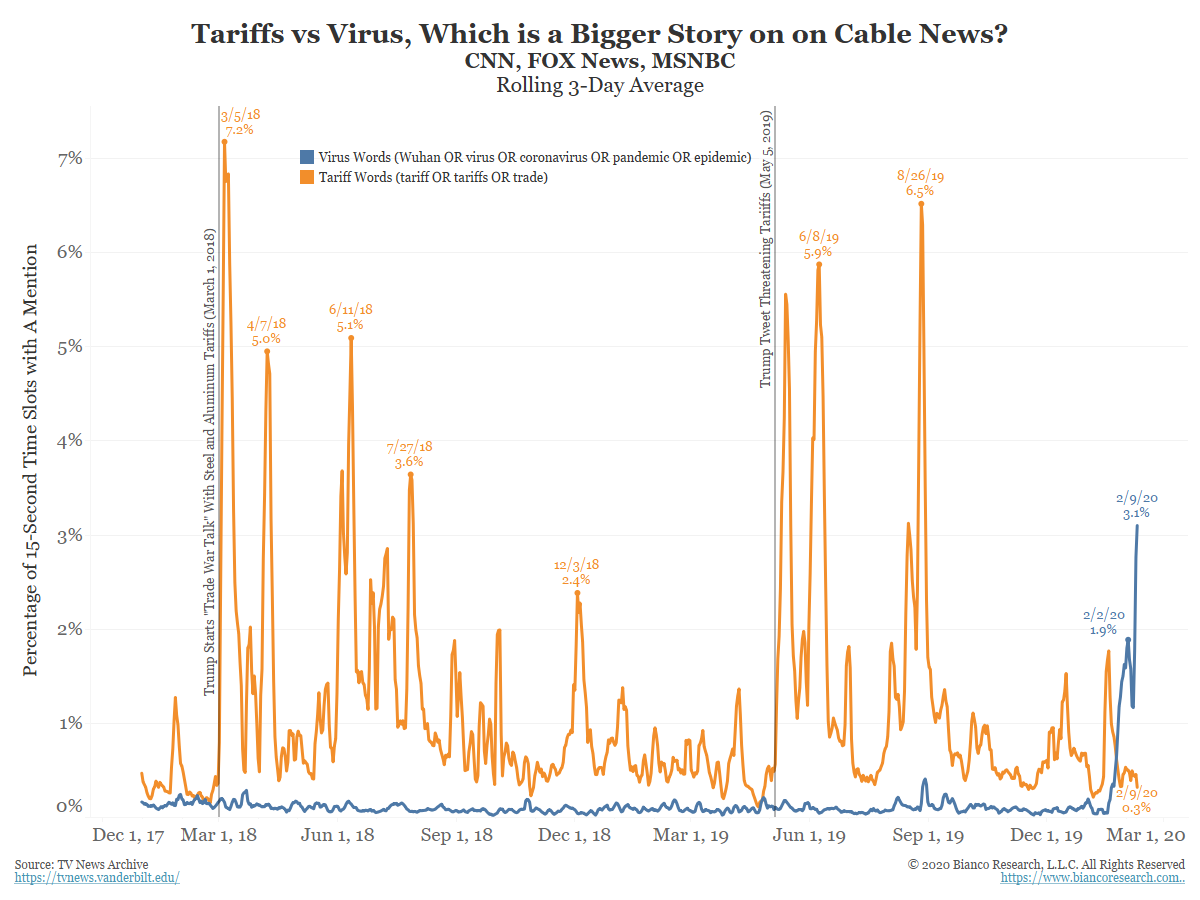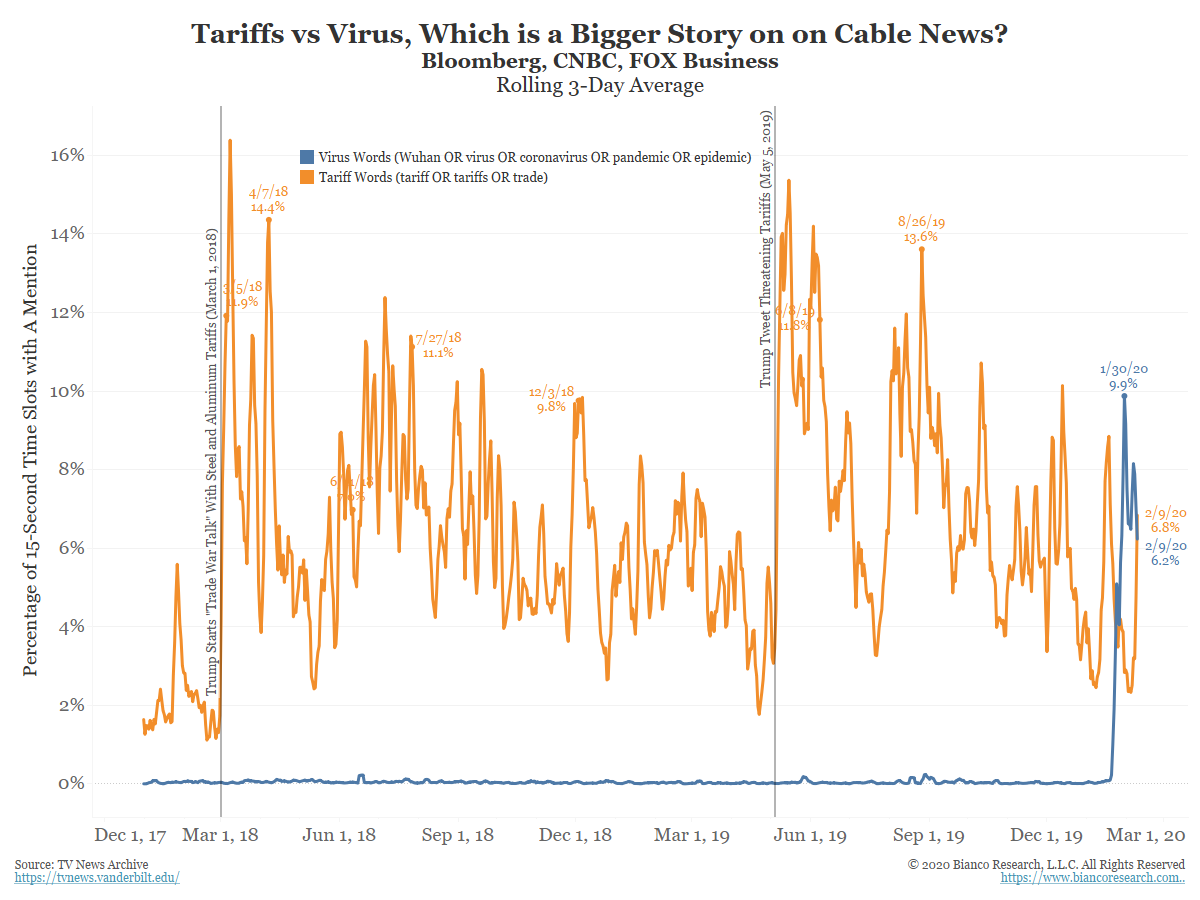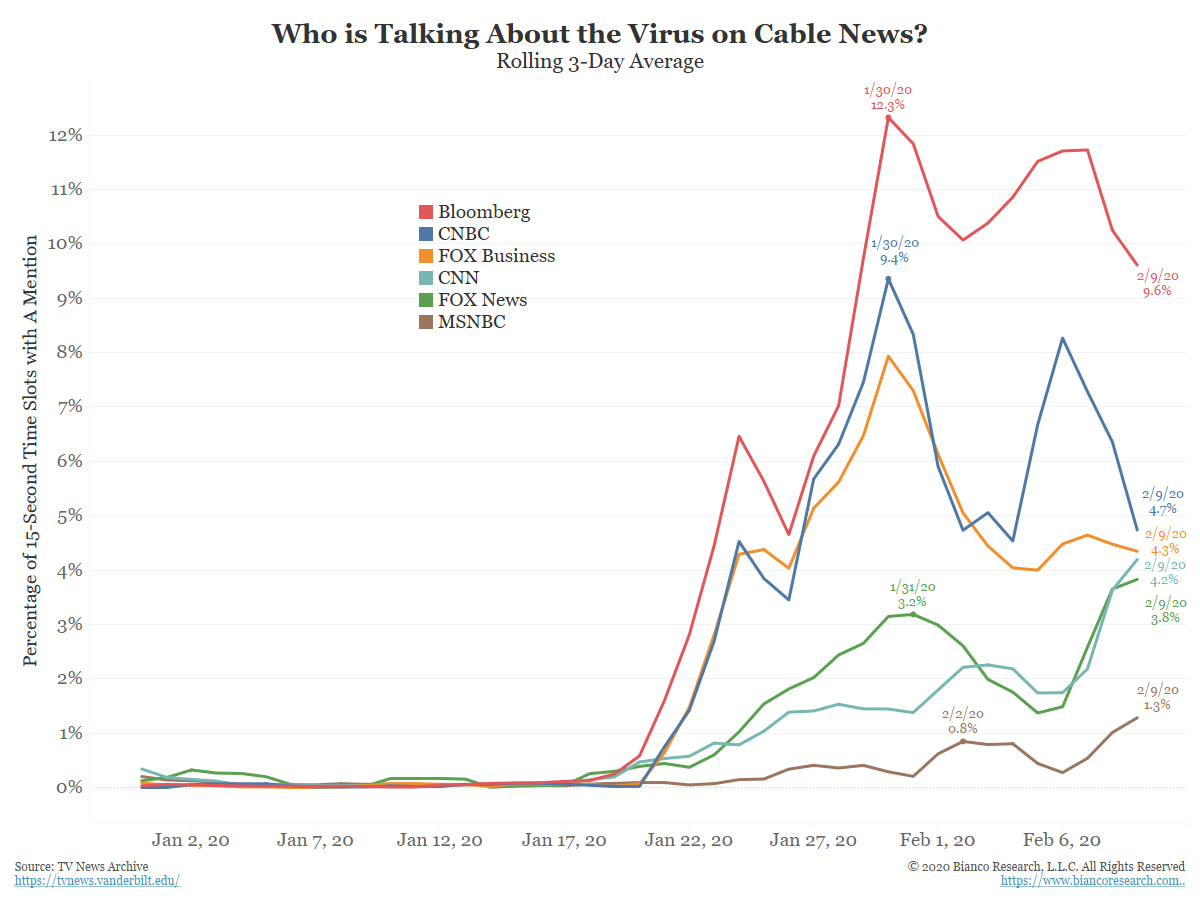- Vox – Don’t scold people for worrying about the coronavirus
Yes, we shouldn’t panic — but let’s not dismiss people’s worries so easily. There’s still much we don’t know about the virus.
“Don’t worry about the coronavirus. Worry about the flu,” BuzzFeed argued. The flu “poses the bigger and more pressing peril,” the Washington Post said. “Why should we be afraid of something that has not killed people here in this country?” an epidemiologist argued in the LA Times. Other outlets have agreed. An ex-White House health adviser has told Americans to “stop panicking and being hysterical.” - The Wall Street Journal – China’s Leader Wages a War on Two Fronts—Viral and Political
Xi Jinping issued a call to arms against the deadly coronavirus, which has spread illness and dissentThe coronavirus epidemic is different. Many Chinese feel directly threatened, propelling a crisis that strikes at the core of Mr. Xi’s claims of strong leadership, as well as the authoritarian system he champions as a model to the world.Government censors are working to squelch dissent. A swift end of the outbreak would limit the political fallout. But its continued spread threatens Mr. Xi’s plans to rule indefinitely and could leave the Communist Party facing a serious loss of public support. “The myth surrounding him has shattered,” Xu Zhangrun, a professor at Beijing’s Tsinghua University said in an interview Friday.
Summary
Comment
While there is no doubt that Asian countries, especially China, are suffering from the coronavirus, and their markets are reacting accordingly, we see little evidence that is happening in the U.S. markets. This has not stopped everyone from screaming “stop panicking” to a crowd that largely is not.
To measure this we turned to the Vanderbilt University project called the Television News Archive. Every day it collects the closed captioning of cable and network news, tracking the percentage of 15-second news slots that mention a word or set of words. We used a 3-day moving average of this metric to smooth out the noise.
We consider contemptuous news coverage to be a good real-time sentiment indicator. TV producers are looking for news that the public is interested in.
The question is what to compare it against? In the last two weeks, U.S TV news coverage has been dominated by impeachment, elections, State of the Union, the inability to count election results, and debates. This is appropriate.
So we compared the current coronavirus coverage, as it has a great economic impact coming from China to another event that had a great economic impact coming from China, the so-called trade war.
the next chart shows the percentage of 15-second news blocks on general cable news (CNN, Fox News, and MSNBC) devoted to tariffs (orange) and the coronavirus (blue). Coronavirus coverage has picked up in the last few weeks, and especially the last few days.
But it pales in comparison to trade war coverage over the last two years. Trump tweets about tariffs (see May, June and August 2019) generated far more coverage in general cable news than infection updates to date.
Turning to business news (Bloomberg, CNBC, Fox Business), we find the coverage is a lot greater than general news. Roughly 1% to 2% of general news 15-second blocks mentioned the coronavirus compared to 8% to 9% of business news coverage mentioned it.
That said, cable business news coverage of the coronavirus still pales to the coverage of the trade war. Like general news, a Trump tweet about tariffs received way more coverage than news about the coronavirus is getting now.
Who is covering the coronavirus? The next chart shows the 3-day moving average of coronavirus coverage by the network.
Bloomberg (red) far and away leads the coverage peaking at more than 12% of its 15-second new blocks for the 3-days ending with January 30. They are covering the economic angle. The next two networks covering it are CNBC (blue) and Fox Business (orange). Bringing up the rear are the general cable news networks, with MSNBC (brown) barely covering it at all. Its coverage has yet just broken above 1% of its 15-second news blocks mentioning it.
Comment
American Investors seem to be running around saying “stop panicking” largely to a crowd that is not. Cable news reflects this reality as this story is still not getting a great deal of coverage. Risk markets in the US rallied big last week.
The consensus is this will either be contained soon, or have the impact of a natural disaster. That is a temporary setback and then a quick return to normal. If so, financial markets are correct to look past this story. But, if it turns out to be more, financial markets have a great deal more downside than has been discounted.
How much more, consider this Wall Street Journal story published today.



Using cable news coverage as a gauge of concern/interest, we find little to no panic with the public over the virus. This suggests that little financial market downside has been discounted.